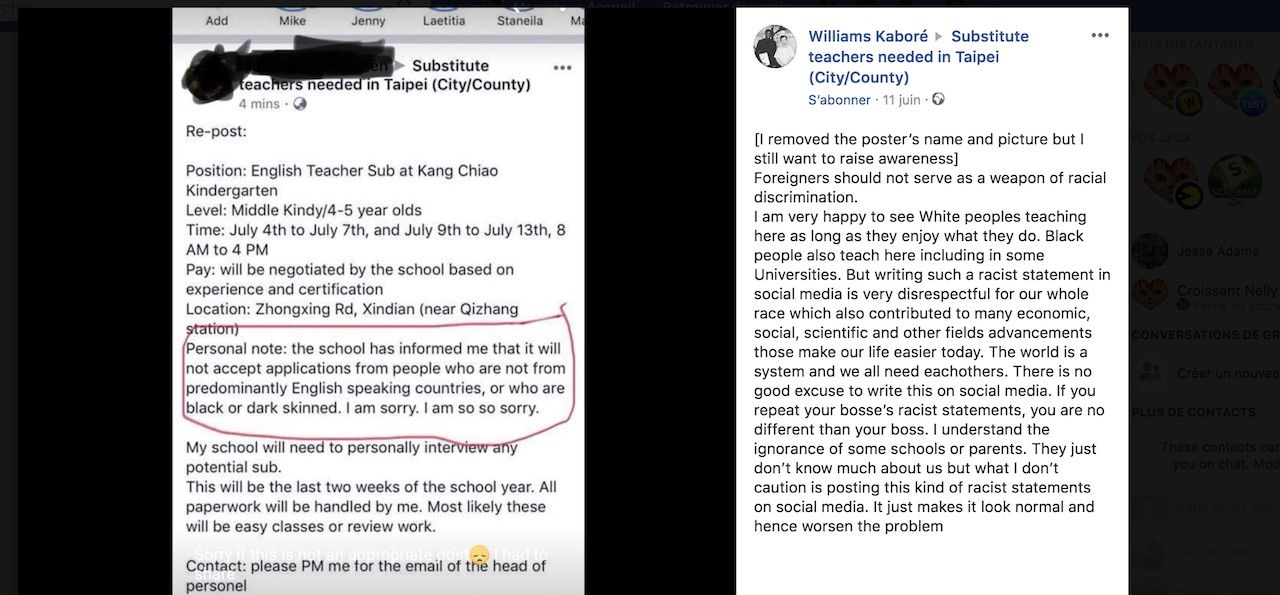Blatant, public discrimination might seem like a thing of the past, but, unfortunately, it’s more common than you might think. A Facebook post, created by an employee for Kang Chiao Kindergarten in Taipei, Taiwan, sought substitute teachers for children aged four to five, starting early July. A pretty standard ad, except for one section, which added a key hiring criteria.

This Taiwanese School Isn’t Hiring Any ‘Black or Dark-Skinned’ English Teachers

Photo: Facebook/Williams Kaboré
“The school has informed me that it will not accept applications from people who are not from predominantly English speaking countries, or who are black or dark-skinned. I am sorry. I am so sorry.”
Although the kindergarten employee immediately removed the posting following the backlash, images of the ad have been reposted by Facebook users. Williams Kaboré, a 21-year-old student at Tamkang University, wrote in a later post that such racist policies are “very disrespectful for our whole race, which also contributed to many economic, social, scientific, and other fields advancements that make our life easier today.”
Others in Taiwan’s black community echo Kaboré’s sentiments. “We want to show everyone how racist some people in Taiwan are,” wrote a Haitian software engineering major at Tamkang University, “especially about jobs here.”
Clearly, this isn’t the first time racial discrimination has been an issue in Taiwan. “This is the norm in Taiwan,” said an English teacher from Saint Lucia. “We have seen these posts off and on, but this is the most ridiculous we have all seen.”
Meanwhile, the Kang Chiao school has issued a statement claiming that they do not discriminate based on race, creed, color, ethnicity, religion, or sexual orientation, insisting that their teachers are hired “based on their educational qualifications and related academic experience.” Indeed, Taiwan’s Employment Service Act strictly prohibits employers from racially-based hiring practices.
While the school many attribute the post to a misunderstanding, the question remains: why the apparent pattern of discrimination in Taiwan? Well, the influx of western culture to Asia has made English a highly desirable language, and native English speakers a commodity. When it comes to hiring teachers, schools seem to prefer white, American or British expats, as they fit the traditional English-speaking ethnic mold. Taiwan’s desire to prepare its students for success in an English-speaking world is understandable, but hiring practices that bar thousands of non-white teachers — who are perhaps more qualified than white teachers — is not only illegal, but detrimental to the health and progress of their education system.
H/T: NextShark